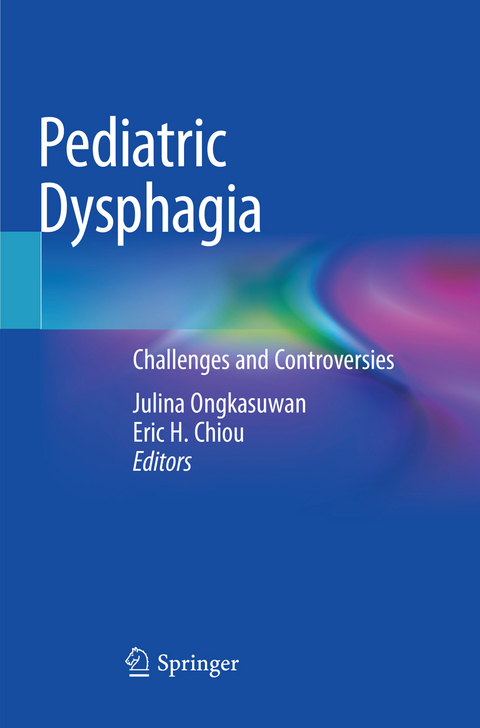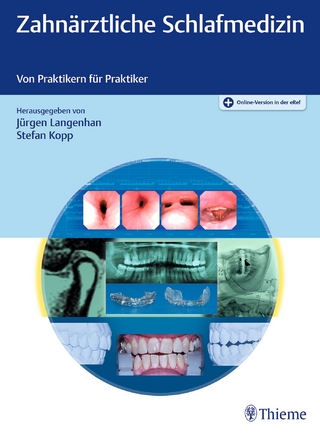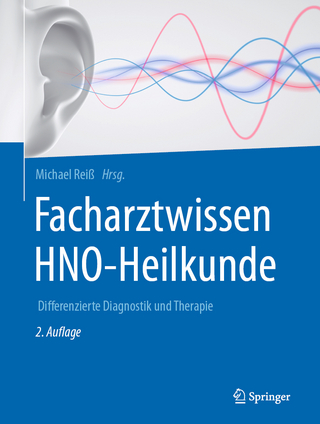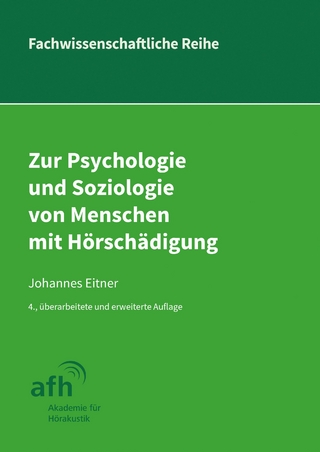
Pediatric Dysphagia
Springer International Publishing (Verlag)
978-3-030-07286-5 (ISBN)
This text provides the reader with a comprehensive understanding of swallowing and presents a practical, evidence-based approach to the diagnosis and management of swallowing difficulties in children. It also highlights particular clinical challenges and controversies in the management of pediatric dysphagia. It is unique in that it incorporates the perspectives of multiple types of clinicians that care for these patients including otolaryngologists, gastroenterologists, pulmonologists, speech pathologists, occupational therapists and lactation consultants. In doing so, this text will encourage cross-specialty pollination of ideas and knowledge as well as stimulate further research in the field.
Part 1 of the text begins with an overview of the anatomy and physiology of swallowing with a focus on normal development as we currently understand it. It also discusses new information regarding reflexive interactions between the larynx and esophagus that potentially influence swallowing. It then moves on to a discussion of the advantages and limitations of currently available diagnostic modalities and highlights current controversies regarding frame rate, radiation exposure, breastfeeding infants, and grading of studies. Additionally, it reviews the current literature regarding medical and behavioral-based therapy options, including thickening options, oromotor therapy, and controversies concerning strict NPO.
Part 2 addresses specific diagnoses which can cause or be associated with dysphagia such as prematurity, velopharyngeal insufficiency, ankyloglossia, laryngeal clefts, laryngomalacia, vocal fold paralysis, and cricopharyngeal dysfunction. The text goes on to explore the pathophysiology and treatment options for each. Anatomic, inflammatory, and neuromuscular esophageal causes of dysphagia are also evaluated. In addition, it delves into the impact of craniofacial anomalies, sialorrhea and psychological factors on swallowing. Finally, it discusses how a multidisciplinary aerodigestive team can help streamline multidisciplinary care for individual patients. It will incorporate information pertinent to the different roles, tools and views of a multidisciplinary dysphagia team, including how pediatric otolaryngologists, gastroenterologists, pulmonologists, speech language pathologists, occupational therapists, and dieticians can collaborate to provide optimal evaluation and care of these often challenging patients, especially for those who are at high-risk of complications related to aspiration.
Julina Ongkasuwan, MD, FAAP, FACS, Otolaryngology-Head & Neck Surgery, Baylor College of Medicine, Houston, TXDr. Ongkasuwan participates in the Aerodigestive clinic which is a multidisciplinary clinic including pulmonary,otolaryngology, and gastroenterology focusing on complicated patients with airway and swallowing disorders. She also is involved in the development of a multidisciplinary voice and swallowing clinic partnering otolaryngology and speech pathology.Neck Surgery, Texas Children's Hospital, Baylor College of Medicine, Houston, TX. Eric H Chiou, MD, FAAP, Division of Pediatric Gastroenterology and Nutrition, Texas Children's Hospital, Baylor College of Medicine, Houston, TXDr. Eric H. Chiou attended medical school at Northwestern University and is a pediatric gastroenterology and pediatrics doctor with offices in Houston, Texas.
Section I: Diagnosis and Treatment of Pediatric Dysphagia.- Embryology and Anatomy.- Maturation of Infant Oral Feeding Skills.- Clinical Evaluation of Breastfed Infants with Dysphagia: A Lactation Consultant's Perspective.- Clinical Feeding-Swallow Evaluation: Overview for the Healthcare Provider.- The Videofluroscopic Swallow Study: A Basic Introduction for the Healthcare Provider.- Who Should Pass the Endoscope During a Fiberoptic Evaluation of Swallowing Procedure.- Fiberoptic Endoscopic Evaluation of Swallowing: Assessing Dysphagia in the Breastfeeding Patient.- Use of Bronchoscopy and Bronchoalveolar Lavage in the Evaluation of Chronic Pulmonary Aspiration.- Diagnosis and Treatment of pediatric Dysphagia: Radiography.- Oromotor Therapy.- Adaptive Feeding Techniques and Positioning: An Occupational Therapist's Perspective.- Treatment for Dysphagia: A Speech Language Pathologist's Perspective.- Section II: Special Topics and Controversies in Pediatric Dysphagia.- Ankyloglossia.- Laryngeal Cleft.- Laryngomalacia, Supraglottoplasty & Feeding and Swallowing Disorders: Is there an Association?.- Vocal Fold Paralysis and Dysphagia: Challenges and Controversies.- Cricopharyngeal Dysfunction in Children.- Esophageal Dyphagia.- Impact of Non-Oral Feeding Methods on Feeding Development.- Secretion Management.- Dysphagia in Patients with Craniofacial Anomalies.- Psychological and Behavioral Disorders in Dysfunctional Feeding: Identification and Management.- The Role of a Multi-Disciplinary Aerodigestive Program.
| Erscheint lt. Verlag | 25.1.2019 |
|---|---|
| Zusatzinfo | XI, 316 p. 60 illus., 38 illus. in color. |
| Verlagsort | Cham |
| Sprache | englisch |
| Maße | 155 x 235 mm |
| Gewicht | 678 g |
| Themenwelt | Medizin / Pharmazie ► Medizinische Fachgebiete ► HNO-Heilkunde |
| Schlagworte | Breastfeeding and FEES • Bronchoalveolar lavage • Cricopharyngeus (CP) Dysfunction • Flexible Endoscopic Evaluation of Swallow • Modified Barium Swallow • velopharyngeal insufficiency |
| ISBN-10 | 3-030-07286-X / 303007286X |
| ISBN-13 | 978-3-030-07286-5 / 9783030072865 |
| Zustand | Neuware |
| Haben Sie eine Frage zum Produkt? |
aus dem Bereich


